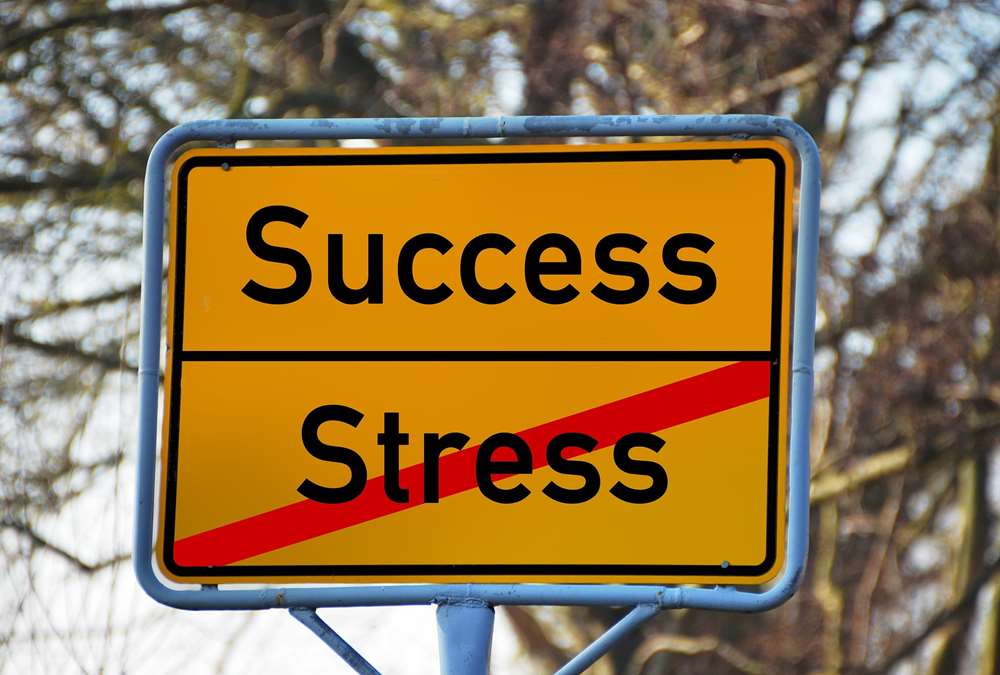- Home
- Business Processes
- Industry Knowledge
- Aerospace Industry
- Automotive Industry
- Banking Domain
- BFSI Industry
- Consumer/ FMCG Industry
- Chemicals Industry
- Engineering & Construction
- Energy Industry
- Education Domain
- Finance Domain
- Hospitality Domain
- Healthcare Industry
- Insurance Domain
- Retail Industry
- Travel and Tourism Domain
- Telecom Industry
- Leadership Skills
- eLearning
- Home
- Leadership Skills
- Stress Management
- Overview of Stress Management
Overview of Stress Management
Stress is a product of the busyness of modern life. It has assumed grave dimensions ever since the emergence of industrialism. In fact, stress is a natural, ongoing, dynamic, and interactive process that takes place as people adjust to their environment. Stress can be brought about by positive or negative life events. Distress can cause disease and eustress or positive stress can promote wellbeing and increased productivity. Learn to recognize and be responsible for your stress, and learn the ways to manage stress.
Stress is Unavoidable
Tim Newton (1995) refers to stress as "an epidemic plaguing modernity". Stress has become so prevalent in the capitalist world that is almost unavoidable. Stress is an additive phenomenon. It builds up over time. Stress is quintessentially a problem that must be borne by management and those in senior positions, whether captains of industry or leaders of government.
It is important to monitor stress levels. In this section, we will provide you with tools to understand the ways in which employees are said to feel and cope with stress, analyze some of the coping strategies and finally learn how to become stress-free through a range of stress management techniques.
What is Stress
All of us experience stress at one or the other time. However, the type of response to it differs from person to person and also depends upon the situation and circumstances. In fact, it is a sum total of the number and nature of the stressor, the personality of the individual, and various other interrelated factors.
Stress can be defined as "Any physical or psychological event that is perceived as a threat to physical or emotional wellbeing (Oliver, 1999).
The "threat" mentioned here can be any factor or stimulus which is actual or perceived. Our body system responds to counteract the threat and this disturbs the normal equilibrium of the body. Our body tries to bring back the normal state of equilibrium once the threat is over. Scientists have found an increased level of a hormone called cortisol during stressed or agitated states and it is called "stress hormone."
Body's Reaction to Stress - Fight or Flight Response
Whenever a stressor is present, our body reacts to prevent the threat imposed on it. The stress hormone "cortisol" is secreted and it prepares us to challenge or escape the threat. When the body is challenged by a stressor, the body prepares itself for immediate action or response. This action is either Fight or Flight response. The physical changes in the body are the same both in the fight as well as a flight response.
Fight Response to Stress
Fight response is to attack and fight to defend one, is initiated by anger or aggression in defense of personal space or property. It usually results in confrontation or active combat or fight.
Flight Response to Stress
Flight response is to withdraw, run or hide to escape the threat, is triggered by fear, and results in fleeing and hiding.
General Adaptation Syndrome
The common effects on the body when stressor persists have been grouped by Hans Seyle as General Adaptation Syndrome. This has three stages:
1. Alarm reaction
The body quickly mobilizes the resources to deal with whatever is threatening. There is an increase in respiration, heart rate, and blood pressure. Pupils are dilated and there is sweating of the body.
2. Resistance
The body remains activated with its defense mechanisms fully at work to maintain the normal state of equilibrium. This stage persists till the stressor is removed, reduced or the next stage of exhaustion begins.
3. Exhaustion
Here the body cannot fulfill demands placed upon it. The fatigue or tiredness sets in. The responses which may have been helpful during the short term can now become damaging and cause substantial wear and tear in the body. If this stage continues, our immune system, which is responsible for fighting the diseases, is disrupted and the body is affected by diseases.
The individuality of Response to Stress
The response to stress is unique to each individual. The following factors influence the response of children and adolescents to stress:
1. Type of personality
There are different types of personality traits like shy or socially active, leader or follower, etc. most commonly, the personality types are classified into Type A(ambitious, competitive, aggressive, tense) and Type B ( easy-going, relaxed, rarely angered). Type A personality is associated with more stress and related diseases.
2. Experience
Past experience modifies the response to stressors
3. Genetics
We all have a different set of genes that control our body functions, actions, behavior, and similarly, our ability to respond to stress.
4. Culture and environment
The values, customs, and the environment we grow in, make us immune or vulnerable to stress. The cultural differences enable us to identify a stressor as meaningful or insignificant.
5. Personal Development
As we mature, we grab more information. However, certain physical and or mental inadequacies viz., eye/ear defects, etc. can affect this process. This can be modified by using hearing aids, Eyeglasses, or use of computers.
6. Mental and emotional state
Our ability to interpret a stressor is greatly influenced by our emotions and the state of our mind. A stressor is likely to cause more harm to a depressed person rather than a happy one.
As we have seen, the attitude, bringing up, experience, and situation and state of mind, all contribute to one's response to stress.
Signs and Symptoms of stress
Stress affects the individual in totality and the signals can be easily identified by others (the signs) or self (the symptoms). It should be remembered that not everyone experiences all of them and they may vary according to the mental state of the individual, nature, severity, and duration of stressor, and situations /circumstances.
Physical & Emotional Symptoms of Stress
- The thumping of the heart including irregular heartbeat and chest pain
- High blood pressure and cold sweaty hands
- Aches and pains including twitching of muscles
- Headache or stiff neck
- Dryness of mouth and throat including indigestion or excess/ loss of appetite
- Stomach ache with diarrhea or constipation
- Rapid breathing or shortness of breath including asthma attacks
- Nightmare with or without loss of sleep or excessive sleep
- Confusion, loss of creativity, memory problems, or low self-esteem
- Negative thinking & lethargy
- Nervousness with unexplained fear
- Restlessness & anxiety with mood swings
- Impulsive behavior
- Depression, irritability, and forgetfulness
- Tearfulness, boredom, or apathy
- Changes in eating, drinking/ smoking
- Loneliness, distrust, intolerance, and loss of friends
- Resentment, sudden outbursts of anger, and poor communication
Related Links
You May Also Like
-
How often do you have a plan for how you are going to spend your day but you aren't able to complete the tasks on your plan because of unimportant tasks, interruptions, or your own procrastination? Wouldn't it be great to be able to manage your schedule and your time while avoiding, or at least controlling, these time stealers? Learn the strategies to manage your schedule while still handling interruptions and demands on your time.
-
Time management is the process of planning and exercising conscious control of time spent on specific activities, especially to increase effectiveness, efficiency, and productivity. The best time management techniques improve the ways you work. Time management refers to managing time effectively so that the right time is allocated to the right activity. Learn more about the five steps for effective time management viz. study, identify, analyze, decide, and implement.
-
Reasons behind Wastage of Time
Under-utilization of time may be due to the faulty system or faults of manager/officer/leader or due to lack of planning. There could be many factors driving the procrastination behavior like system issues, personal work habits, and lack of delegation, personality traits, and bad working habits of the leader, failure to tackle interpersonal conflicts, obstacles, and lack of far-sightedness.
-
Tips for Effective Time Management
After studying and analyzing how time is spent, why time is wasted, and where time is wasted you need to decide about the changes required for effective utilization of time. For this purpose, a large number of remedial measures can be taken by you. The first and foremost determinant of a planned and purposeful utilization of time is to develop consciousness of the value of time at all levels of the organization. Planning, goal setting, and defining priorities are concerns to addressed immediately.
-
The best career choices are ones that match your values. Each person has several values that are important to him. These values are highly personal and knowing them provides a clearer sense of what's most important to you in your life and career. Career values are the beliefs you consider important from a work standpoint. Values help you understand what you want from a job? Explore a few examples of work values that can influence career path and job satisfaction.
-
Authentic leadership is an approach to leadership that emphasizes building the leader's legitimacy through honest relationships with followers which value their input and are built on an ethical foundation. The authentic leader acts upon his or her values and beliefs, and inspires others to do the same, is committed to know and develop oneself. Are you committed to developing yourself; know your motivations and the purpose of your leadership? Read this article to know more about authentic leadership style and discovering your authentic self.
-
Concept & Definition of Stress
Stress is a popular expression used by people in day to day life. Pressures of day to day living sometimes necessitate coping or dealing with them and stretch the body beyond its natural capacity. They are called stressors. Stress is a natural, ongoing dynamic, and interactive process that takes place as people adjust to their environment.
-
A manager or an employee in an organization who is experiencing a high level of stress may develop high blood pressure, ulcers, irritability, difficulty in making routine decisions, loss of appetite, accident proneness, and the like. These can be subsumed under three general categories, physiological, psychological, and behavioral symptoms. Stress can give rise to a number of changes.
-
Evidence of the medically damaging symptoms of work stress necessitates applying the treatment of stress management. Stress management is increasingly drawing the attention to the management experts not only as a remedial measure but also as a way to resource management. If the workplace can be made a little more lovable the increase in the achievement of the organization may be much time more. If group stress can be removed by introducing group discussions and recreational facilities a long-lasting team spirit may get developed.
-
Crisis leadership is a very important part of leading in today's world. The skills a leader needs in order to guide people during a crisis are different from the skills needed to help a group grow. Are you a good crisis leader? What is your leadership style in case of a business crisis situation? A business crisis can test the strongest of leaders, read this article to explore how to ensure you’re ready to take action and weather the storm when one strikes you.
Explore Our Free Training Articles or
Sign Up to Start With Our eLearning Courses

About Us
Learning
© 2023 TechnoFunc, All Rights Reserved










